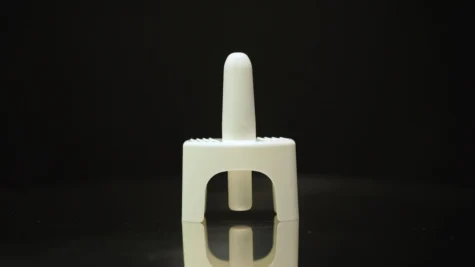Heroin is a powerful and highly addictive opioid that has profound effects on the body, particularly on the nervous system. Its impact is not only immediate but can also cause long-term changes that make recovery challenging. At Southern Sky Recovery, we believe that understanding how heroin affects the nervous system is a critical part of building awareness and encouraging treatment for those affected by opioid addiction.
Understanding Heroin and Its Immediate Effects
Heroin is a fast-acting opioid derived from morphine, which comes from the opium poppy plant. When used, heroin enters the brain quickly and binds to specific receptors, triggering a release of neurotransmitters responsible for intense feelings of euphoria and pain relief. However, this quick surge in pleasure is followed by numerous adverse effects on the nervous system, which can disrupt the body’s ability to function normally.
The Impact of Heroin on the Central Nervous System
The central nervous system (CNS) includes the brain and spinal cord, which control virtually every function in the body, including movement, thought, and the senses. Heroin has significant effects on this system:
Binding to Opioid Receptors
Heroin binds primarily to the brain’s opioid receptors, specifically targeting areas that regulate pain and pleasure. This binding triggers the release of large amounts of dopamine, leading to a euphoric rush. However, the CNS quickly adapts, and over time, users need higher doses to achieve the same feeling, a phenomenon known as tolerance.
Respiratory Depression
One of the most dangerous effects of heroin on the CNS is its suppression of respiratory function. By depressing the brainstem, which controls basic life functions like breathing, heroin can slow breathing to dangerous levels, which is a leading cause of overdose deaths.
Changes in Brain Chemistry and Reward Pathways
Heroin interferes with the brain’s natural reward system by overstimulating dopamine pathways. This disruption reduces the brain’s ability to produce dopamine naturally, leading to a cycle where individuals rely on heroin to feel pleasure or even a sense of normalcy.
Pain Suppression and Dependency
As heroin binds to pain receptors, it provides relief from physical and emotional pain. However, with prolonged use, the brain reduces its own production of endorphins, the body’s natural painkillers, making it challenging to cope with pain without heroin and leading to dependency.
Effects of Heroin on the Peripheral Nervous System
The peripheral nervous system (PNS) consists of nerves outside the brain and spinal cord, controlling motor and sensory functions. Heroin affects the PNS as well, impacting physical coordination, muscle control, and sensitivity:
Nerve Damage and Reduced Motor Control
Chronic heroin use can lead to nerve damage, affecting balance and coordination. As users become dependent, they may experience difficulty in controlling their body movements and may develop issues with motor function over time.
Hyperalgesia (Increased Sensitivity to Pain)
Over time, heroin can actually increase pain sensitivity, a condition known as hyperalgesia. This occurs because the nervous system becomes hypersensitive to stimuli, causing even minor sensations to feel painful. This effect can make withdrawal particularly challenging for individuals who have used heroin for extended periods.
Long-Term Neurological Effects of Heroin
Long-term heroin use leads to significant neurological changes that can alter behavior, mood, and cognitive function. Here are some of the more persistent effects on the nervous system:
Cognitive Impairment and Memory Loss
Prolonged heroin use can impair cognitive functions, leading to difficulties in learning, concentrating, and memory recall. These issues stem from both the drug’s direct impact on the brain and its secondary effects, such as poor nutrition, disrupted sleep, and other lifestyle factors associated with addiction.
Mood Disorders and Mental Health
Chronic heroin use often results in mood disorders, including anxiety, depression, and irritability. These mental health challenges can be exacerbated by the way heroin disrupts the brain’s chemical balance and emotional regulation, making it difficult to find joy in everyday life without the drug.
White Matter Damage
Studies have shown that heroin can damage white matter in the brain, the part responsible for communication between different brain regions. This damage can impair decision-making, impulse control, and the ability to regulate behavior, further contributing to addiction and risky behavior patterns.
The Process of Dependence and Withdrawal
Dependence on heroin results from the nervous system’s adaptation to the drug. As heroin alters the brain’s reward pathways and opioid receptors, the nervous system becomes reliant on it to function normally. When a person stops using heroin, the body struggles to restore balance, resulting in withdrawal symptoms. These symptoms can include:
- Anxiety and Irritability
- Muscle Pain and Cramping
- Nausea and Vomiting
- Intense Cravings for Heroin
The severity of these withdrawal symptoms underscores the powerful hold heroin can have on the nervous system and why medical support is often necessary for successful detox and recovery.
The Importance of Professional Treatment at Southern Sky
Heroin’s effects on the nervous system are profound, but recovery is possible with the right support. At Southern Sky Recovery, we provide comprehensive treatment programs to help individuals overcome heroin addiction and rebuild their lives. Our evidence-based therapies focus on healing both the brain and body, helping clients manage withdrawal symptoms, develop coping skills, and restore physical and mental health.
Heroin’s impact on the nervous system is extensive, affecting the brain’s reward system, physical coordination, mood regulation, and more. The journey to recovery can be challenging, but with medical support, therapy, and a supportive environment, it is possible to regain control and lead a fulfilling, drug-free life.
If you or a loved one is struggling with heroin addiction, Southern Sky Recovery is here to help. Contact us today to learn more about our programs and take the first step toward lasting recovery.



